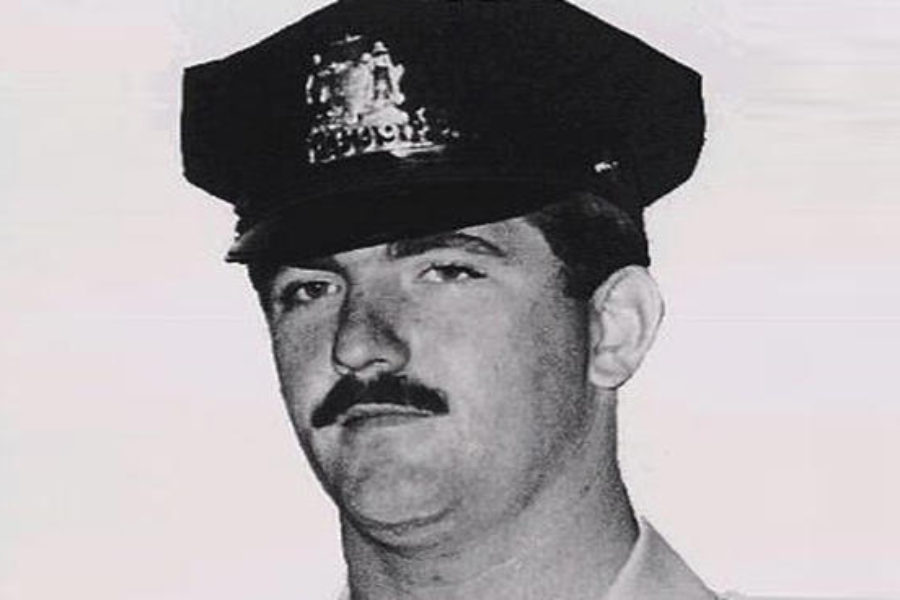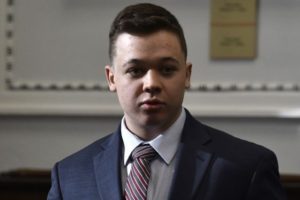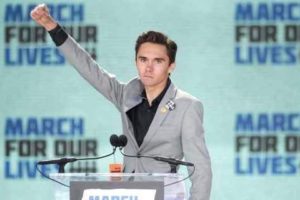In May 2018 I posted about the ongoing disgrace of the never-ending appeals by convicted cop killer Wesley Cook a/k/a Mumia Abu-Jamal. Below is my latest op-ed on this subject which will be published tomorrow in the Philadelphia Inquirer‘s Sunday print edition. (It is already on line at this link.)
Mumia Abu-Jamal’s latest appeals victory sets a problematic precedent | Opinion
The trial evidence was stark and brutal. In the early-morning hours of Dec. 9, 1981, Philadelphia police officer Daniel Faulkner conducted a traffic stop in Center City Philadelphia. A scuffle ensued with the driver, one William Cook.
After subduing the driver, Faulkner began to search him for weapons. It was then that Cook’s brother, Wesley, approached from behind and shot Faulkner in the back. As Faulkner fell, he managed to shoot — but not incapacitate — Wesley. Then, as Faulkner lay helpless, Wesley Cook, also known as Mumia Abu-Jamal, executed him with a bullet to the head.
In 1982, a multiracial jury of Philadelphians sentenced Abu-Jamal to death. Since then his appeals have been exhaustively litigated in the Pennsylvania and federal courts. In 2011, the Third Circuit Court of Appeals overturned his death penalty. In 2012, the Pennsylvania Supreme Court denied what was then believed to be his final appeal.
But, in April 2018, his lawyers filed a petition for post-conviction relief alleging bias by former Supreme Court Justice Ron Castille who had joined in denying Abu-Jamal’s appeal. Purportedly, when Castille was Philadelphia’s district attorney, he had direct involvement in prosecuting Abu-Jamal and therefore should have recused himself from hearing the appeal.
D.A. Larry Krasner’s office opposed the petition on the grounds that, because Castille did not have a direct hand in prosecuting Abu-Jamal, there was no conflict of interest warranting recusal.
After conducting hearings, Common Pleas Court Judge Leon Tucker last week issued a 36-page Memorandum Opinion in which he found that Castille had no significant personal involvement in prosecuting Abu-Jamal’s case. Nevertheless, Tucker granted the petition because, when Castille had been Philadelphia’s district attorney, he had sent a ”June 15, 1990 letter to the Governor urging the issuance of death warrants, particularly against individuals convicted of killing police officers.” According to Tucker, this letter, along with Castille’s “campaign speeches, campaign endorsements, and letters urging the issuances of death warrants,” raised an “appearance of impropriety” requiring his recusal from hearing the appeal of Abu-Jamal’s conviction for murdering a police officer.
Tucker’s reasoning is, to put it kindly, problematic. If Castille’s prosecutorial advocacy of the death penalty disqualified him from 20 years later hearing Abu-Jamal’s appeal, then where does that leave the many former prosecutors who are now sitting as trial and appellate court judges? Are they disqualified from hearing criminal cases because as prosecutors they sought to punish criminals? And, by the same token, are judges who previously practiced as criminal defense lawyers disqualified from hearing criminal cases because they once sought leniency for their clients?
Clearly Tucker’s decision should be appealed. But will D.A Krasner do so? If he does, then there will be years of appellate litigation to determine whether Tucker got it right. If Krasner doesn’t appeal, then Abu-Jamal will be able to take yet another trip up the appellate ladder to challenge his conviction.
Either way, thanks to our legal system’s shameful allowance of never-ending appeals, 37 years after Faulkner’s cold-blooded murder, this case has no end in sight.
Author’s note: In the interest of full disclosure, I am close friends with Joseph McGill, my former colleague in the Philadelphia District Attorney’s Office who successfully prosecuted Abu-Jamal for the Faulkner murder. I know and admire and have provided legal services to Faulkner’s courageous widow, Maureen. Supreme Court Justice Castille and I were colleagues in the District Attorney’s Office and we have been on friendly terms for decades. Finally, many years ago, I agreed to represent an African American who had been in the emergency room where Abu-Jamal was brought for treatment within minutes of his shooting Faulkner. This bystander heard Abu-Jamal angrily proclaim that he had killed Faulkner.
POST SCRIPT: So far, online reader reaction has been almost completely positive. I did receive one email here at Knowledge is Good from an outraged correspondent who repeated the radical left talking point that Abu-Jamal was framed by police and prosecutors because, as a journalist, he had publicly criticized the Philadelphia Police Department.
In the August 1999 issue of Vanity Fair, Pulitizer Prize winning reporter Buzz Bissinger (whom I have known for decades), wrote an article questioning this claim.
When he was writing his article, Buzz contacted me for comment since, from 1978 to 1983, I had been Chief of the Police Misconduct Unit of the Philadelphia District Attorney’s Office. In that capacity, I not only supervised and conducted investigations and prosecutions of the police for illegal use of force and corruption, I also interacted on a daily basis with the minority community and news media regarding those issues. As Buzz related in Vanity Fair, I had never heard of Abu-Jamal before he murdered Danny Faulkner in 1981. And that was consistent with what everyone else on the front lines of Philadelphia’s police and community relations told Buzz.
In short, the people who were in the best position to know confirmed that Abu-Jamal was a nameless, faceless nobody before he murdered Faulkner. The purported motive that he was targeted for reprisal by the police because he had criticized them in the media is a lie. But then, for the past 37 years, the whole Abu-Jamal defense has been a cavalcade of lies by the radical left.




2 Comments
Leave your reply.